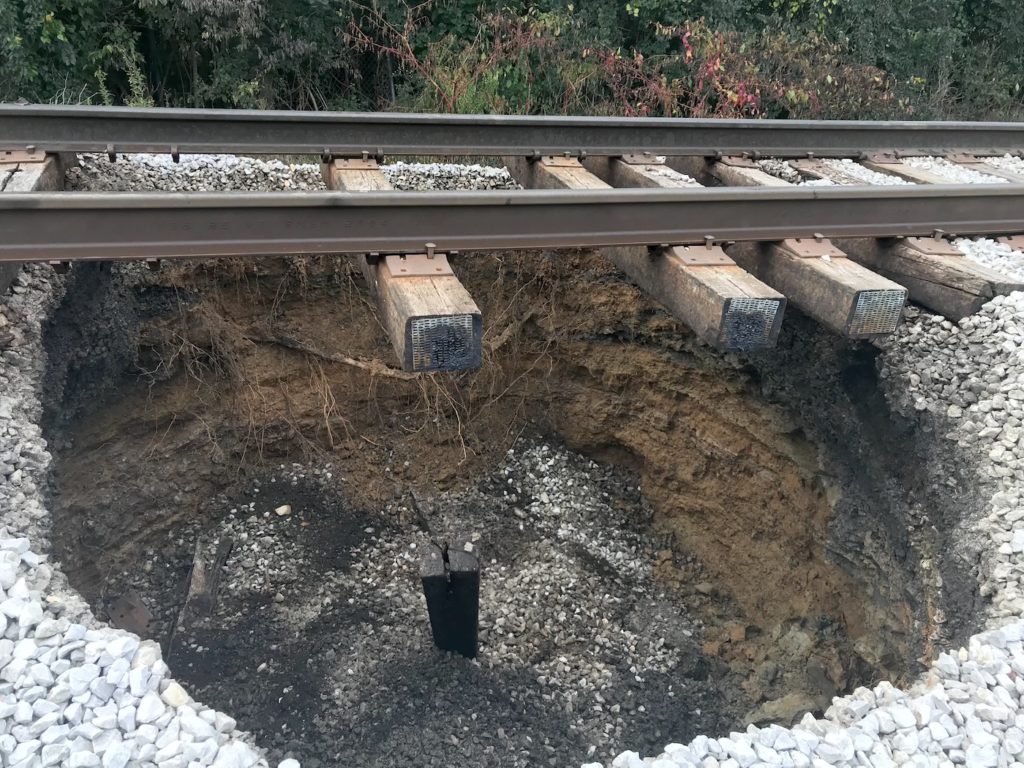
Sinkholes are popping up, or rather down, more often in some parts of the Southeast.
The geologic hazard is becoming a larger threat in Tennessee, largely, because climate change is intensifying the hydrologic cycle. Sinkholes can also result from leaking drain pipes, burst water mains or any major change in the water table level — often below roadways or in people’s backyards.
State lawmakers are trying to pass a bill that would require home sellers to disclose the presence of a sinkhole. This is already required by state law if the sinkhole is recorded on a plat map of the property. These maps aren’t always up to date, and some properties might not even have a plat map with contour lines.
“We dropped that part. So it’s just, ‘If you know of a sinkhole, you need to report it,’” said Rep. Darren Jernigan, D-Old Hickory, the bill sponsor.
He described the proposal as a “not very sexy bill” but one of the most important, inspired by one of his constituents dealing with a 1950s home that had no mapped contour lines.
The city of Nashville has been considering mapping its sinkholes through its Multi-Hazard Mitigation Plan for a few years now, but this is still in the development phase. Sinkholes can be mapped using incidence reports and a geographic information system, or GIS.
There is another bill being pushed right now that would require the state to map landslides, which can coincide with sinkholes. Both geologic hazards are linked to extreme rainfall events.

